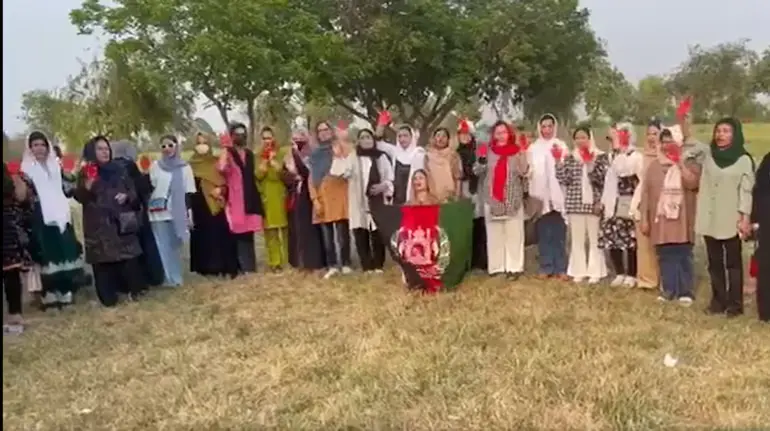In response to the Taliban’s newly imposed regulations that restrict women’s public voices, Afghan women are using social media to voice their dissent and protest. The Taliban’s latest rules, part of a comprehensive 114-page document issued by their Ministry for the Propagation of Virtue and the Prevention of Vice, mandate that women cover their faces, bodies, and voices in public. This set of laws, approved by Taliban leader Hibatullah Akhundzada, has drawn significant backlash from Afghan women who are determined to resist these regressive measures.
One prominent protester, Taiba Sulaimani, shared a video on X where she defiantly sings in front of a mirror. Her post, accompanied by the message, “You call my voice naked; But I will sing the anthem of freedom!” and the hashtag #NoToTaliban, embodies her resistance against the new law.
تو صدای من را عورت بخوان؛ ولی من سرود آزادی خواهم خواند.!#No_to_taliban pic.twitter.com/Fc9VvuopZU
— Taiba Sulaimani ( طیبه سلیمانی) (@Taiba_sulaimani) August 27, 2024
Another notable figure, Jahanzeb Wesa, an independent journalist from Afghanistan, posted a video showing a group of women singing as a form of protest. Her caption read, “This is the answer of brave Afghan women’s on the Taliban’s new laws. Afghan women are boldly countering Taliban’s New Draconian law by singing out louder than ever,” with the hashtag #MyVoiceIsNotForbidden.
Raise Your Voice for Freedom Of Women!
—This is the answer of brave Afghan women’s on the Taliban's new laws.
—Afghan women are boldly countering Taliban’s New Draconian law by singing out louder than ever.#MyVoiceIsNotForbiden #WomenRights #UN pic.twitter.com/xszvCV0Rvp
— Jahanzeb Wesa (@wesa_jahanzeb) August 27, 2024
The United Nations has expressed concern that these restrictions will exacerbate the difficulties faced by women and girls in Afghanistan, highlighting the ongoing international scrutiny of the Taliban’s policies. The online protests by Afghan women reflect their resilience and determination to assert their rights and freedoms despite the oppressive new regulations.







